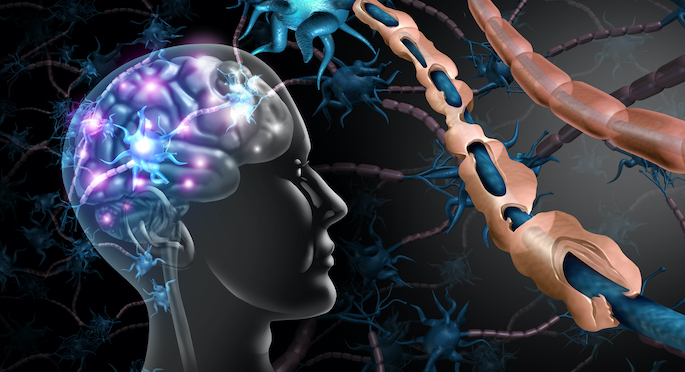Multiple Sclerosis Treatment in Navi Mumbai
Dr. Girish Nair's clinic offers comprehensive treatment for Multiple Sclerosis (MS) in Navi Mumbai. With a specialized focus on neurological disorders, Dr. Nair and his team provide personalized care tailored to each patient's needs. Their approach integrates cutting-edge medical advancements with compassionate support, aiming to enhance the quality of life and manage symptoms effectively.
The clinic employs a multidisciplinary approach, combining medication, physical therapy, and lifestyle modifications to address the complexities of MS. Patients can expect thorough evaluation, timely interventions, and ongoing monitoring to optimize outcomes. Dr. Nair's clinic stands as a beacon of hope for individuals battling MS in Navi Mumbai and beyond.
What is Multiple Sclerosis (MS)
Multiple sclerosis (MS) is a chronic autoimmune disease affecting the central nervous system, disrupting the flow of information between the brain and the body. It occurs when the immune system mistakenly attacks the protective covering of nerve fibers, called myelin, leading to inflammation and damage. This damage can cause a wide range of symptoms including fatigue, difficulty walking, numbness or weakness in limbs, vision problems, and cognitive impairment. MS is unpredictable and varies greatly in severity and progression among individuals. There is currently no cure, but treatments exist to manage symptoms and slow disease progression.
Treatment for Multiple Sclerosis
Multiple Sclerosis (MS) treatment focuses on managing symptoms, slowing disease progression, and improving quality of life. Here's a concise overview:
Disease-Modifying Therapies (DMTs)
- Medications like interferons (e.g., Avonex, Rebif), glatiramer acetate (Copaxone), and newer drugs (e.g., ocrelizumab, fingolimod) reduce the frequency and severity of relapses and slow disease progression.
Symptom Management
- Medications: For specific symptoms (e.g., muscle spasticity, fatigue, pain).
- Physical Therapy: To maintain mobility and manage muscle weakness.
- Occupational Therapy: To assist with daily activities and improve independence.
Acute Relapse Treatment
- Corticosteroids: High-dose steroids (e.g., methylprednisolone) to reduce inflammation and shorten relapse duration.
- Plasma Exchange: For severe relapses not responding to steroids.
Lifestyle Modifications
- Exercise: Regular, moderate exercise tailored to individual capabilities.
- Diet: Balanced diet to support overall health.
- Stress Management: Techniques like yoga, meditation, and mindfulness.
Supportive Care
- Mental Health Support: Counseling or therapy to manage emotional well-being.
- Support Groups: Connecting with others facing similar challenges for shared experiences and advice.
Types:
Clinically isolated syndrome (CIS) : This is a single, first episode, with symptoms lasting at least 24 hours. If another episode occurs at a later date, a doctor might diagnose relapse-remitting MS.
Relapse-remitting MS (RRMS): This is the most common form. Around 85% of people with MS are initially diagnosed with RRMS. RRMS involves episodes of new or increasing symptoms, followed by periods of remission, during which symptoms go away partially or totally.
Primary progressive MS (PPMS): Symptoms worsen progressively, without early relapses or remissions. Some people may experience times of stability and periods when symptoms worsen and then get better. Around 15% of people with MS have PPMS.
Secondary progressive MS (SPMS): At first, people will experience episodes of relapse and remission, but then the disease will start to progress steadily.
Symptoms:
Muscle weakness: People may develop weak muscles due to lack of use or stimulation due to nerve damage.
Bladder problems: A person may have difficulty emptying their bladder or need to urinate frequently or suddenly, known as urge incontinence. Loss of bladder control is an early sign of MS.
Bowel Problems: Constipation can cause fecal impaction, which can lead to bowel incontinence.
Dizziness and vertigo: These are common problems, along with balance and coordination issues.
Sexual dysfunction: Both males and females may lose interest in sex.
Frequently Asked Questions
Multiple Sclerosis can impact movement, coordination, and energy levels, making daily tasks like walking, writing, or climbing stairs challenging. With early Multiple Sclerosis Treatment in Navi Mumbai and proper management, many patients continue to lead active lives.
Flare-ups, or relapses, can be triggered by stress, infections, fatigue, or extreme temperatures. Managing these triggers alongside regular medical care helps reduce the frequency of symptoms.
Yes. Relapsing forms of MS often use disease-modifying therapies to prevent flare-ups, while progressive MS focuses on symptom management, rehabilitation, and supportive care. Your doctor will recommend the best plan for your condition.
Absolutely. Physiotherapy and regular exercise improve muscle strength, balance, and mobility. Combined with medications, it plays an important role in Multiple Sclerosis Treatment in Navi Mumbai.
Most disease-modifying therapies are designed for long-term use under medical supervision. Regular check-ups ensure effectiveness and help monitor side effects, keeping treatment safe and personalized.

